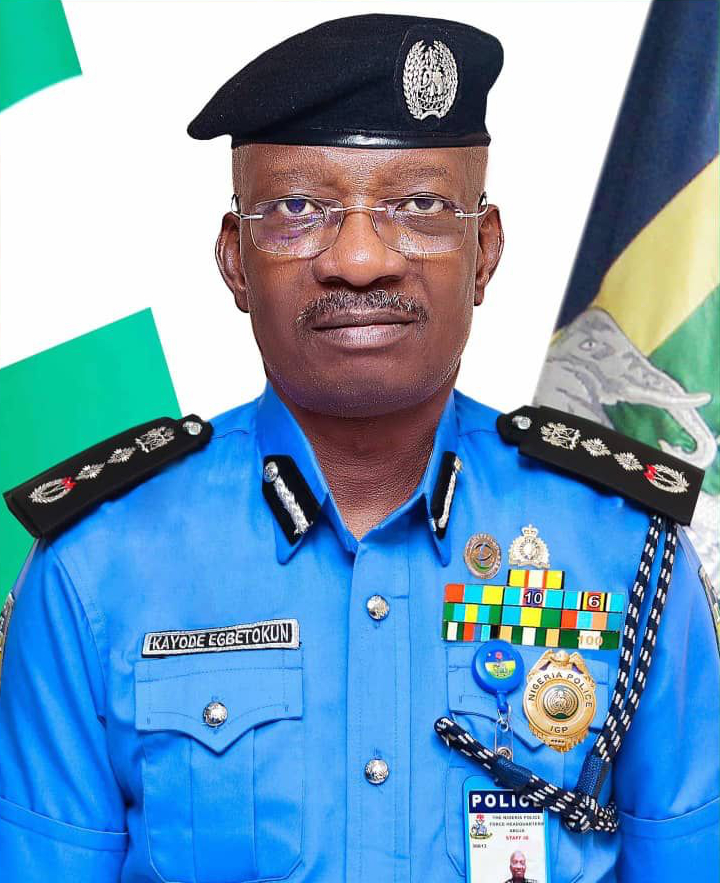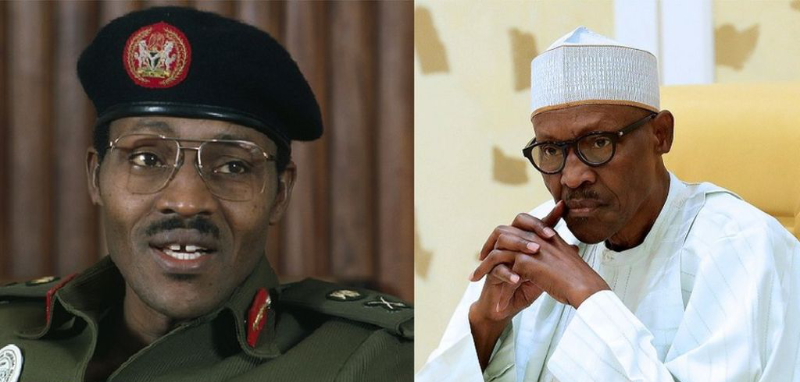North’s ‘conspiracy’ is unlikely to prevent Tinubu’s re-election
Published on 2024 July 1, Monday Back to articles
1999-2007 vice president Atiku Abubakar (L) visits 2015-2023 president Muhammadu Buhari (R)
Last week former president Muhammadu Buhari’s home suddenly became a Mecca of sorts after various senior politicians from the North paid a series of visits in what many interpreted as the beginning of the positioning for the 2027 presidential election. On 22 June the 1999-2007 vice president Atiku Abubakar — who was also the Peoples Democratic Party’s (PDP) candidate in the 2019 and 2023 elections — visited Buhari at the Katsina State town of Daura where the habitually reclusive ex-president had retired to.
Abubakar’s media team claimed that he was in the state to pay a condolence visit to the family of a friend who recently died and used the opportunity to visit Buhari to pay ‘Sallah homage’ but nothing was said about their discussions. Abubakar was accompanied by two PDP members — Sokoto State’s 2016-2023 governor Aminu Tambuwal, and a former PDP National Secretary, Ibrahim Tsauri — as well as some party supporters, which brought some political colour to the visit.
Abubakar’s visit would perhaps have gone unnoticed except that 24 hours later another northern political heavyweight. Nasir el-Rufai, was also a guest of Buhari. El-Rufai similarly claimed he was visiting the former president to pay Sallah homage. The two visits ruffled political feathers because the two were once former allies who drifted apart. Abubakar was reportedly responsible for headhunting el-Rufai to serve in former president Olusegun Obasanjo’s 1999-2007 government. However, they fell out after Obasanjo blocked his then vice president’s ambition to succeed him. Since then, they have largely remained in different political camps. They were briefly both in the All Progressives Congress (APC) in 2015 but Abubakar later defected to the PDP.
Even more interestingly, both Abubakar and el-Rufai have been critics of Buhari. Abubakar lost to Buhari in both the 2015 APC primaries and then again in the 2019 presidential elections. Even though el-Rufai has been in the APC, he was a silent critic of Buhari’s Presidency and led the group of northern governors that torpedoed Buhari’s attempt to get former Senate speaker, Ahmad Lawal, to succeed him in the 2023 presidential elections and actively backed Tinubu who was not Buhari’s preferred candidate.
Changing political landscape
The changing political landscape may be bringing together the three men who have nothing particular in common. El-Rufai has lost favour with Tinubu’s Presidency and was removed from the cabinet list despite all his efforts to help Tinubu’s election campaign. Even worse, he has been indicted by the Kaduna State Assembly which has accused him of mismanaging billions of Naira in loans from the World Bank for infrastructure projects.
The State Assembly alleges that many of the projects have been abandoned and have called on the state government to invite the Economic and Financial Crimes Commission (EFCC) to investigate the el-Rufai’s former administration. His position and influence in the ruling APC now look uncertain and he therefore has a reason to look for alternative platforms to salvage his political career or where he can regain his previous influence.
For Abubakar, as usual, this is all about the next presidential election. He is convinced he can have one more shot at the Presidency in 2027 even though he would be 80 years old by then and many believe he will be much too old. Buhari may have a different motive. Close allies and supporters of President Tinubu have blamed him for Nigeria’s economic woes. They have been quick to point out that Tinubu inherited a ‘dead’ economy from Buhari and that his efforts to restore the damage are the principal reason for the current cost of living crisis so Buhari has effectively become the scapegoat. The three men therefore share a common grudge against the Tinubu Presidency which could inspire an alliance.
For all his shortcomings as president, Buhari remains largely popular with ordinary people in the North. The past year’s economic hardship brought about by Tinubu’s reforms have made Buhari even more popular, and especially in the North where governance is all about the cost of living. When the people look back, they remember that food and other items were cheaper under Buhari than they are now. This could be interpreted to mean that the previous presidency was far better than the current one. This means that Buhari’s personal cult-like support, which had faded significantly in the year before he left office, appears to be once again regaining some strength. El-Rufai and Abubakar could be seeking to tap into this support, which no other northern politician has, to build an alliance against Tinubu in 2027.
Why the alliance against Tinubu is unlikely to succeed
Kaduna Central’s 2015-2019 senator, Shehu Sani, was the first to note that the visits by Abubakar and el-Rufai were an attempt to try and resurrect the Buhari charm to deceive vulnerable Northerners against Tinubu in 2027. He argued that the alleged plot would fail because northerners still remembered that Buhari governed the country for eight years when insecurity and poverty remained at its peak. Separately, an APC official said the party was unconcerned because it believed the visits would not achieve anything.
Politically, Buhari is not an ideal candidate to build a political opposition around unless someone else is leading it. While he has a fanatical support base in the North, which may not be as strong as it was before 2015, it is probably unmatched by any other politician in the region. The challenge though is that he is unlikely to lift a finger to mobilise his fan base to support any candidate against the incumbent president and especially Tinubu. No one expects him to actively go on the campaign trail against the Presidency or openly criticise Tinubu’s administration. The best he can do is to signal his support for a particular candidate and hope that translates to votes.
It is also unlikely that Buhari will back el-Rufai or Abubakar no matter how angry he may be with Tinubu. Neither have had a particularly good previous relationship with Buhari and that is unlikely to change with a single visit or even long-term persuasion. Buhari is more inclined to mend fences with Tinubu before 2027 than back either man.
Despite this, Tinubu cannot ignore the increasing moves by northern political elites to build an alliance against him because it reflects the region’s increasing dissatisfaction with his government. The North’s elite see it as a political opportunity and want to take advantage of it in 2027. It is virtually certain that his political goodwill has been impacted by the increasing hardship and his inability to curb insecurity. This will cost him significant votes from the North in the 2027 elections so votes from the South are probably going to be what carries him across the line if he is re-elected.
This excerpt is taken from our Nigeria Politics & Security weekly intelligence report. Click here to receive a free sample copy. Contact info@menas.co.uk for subscription details.


